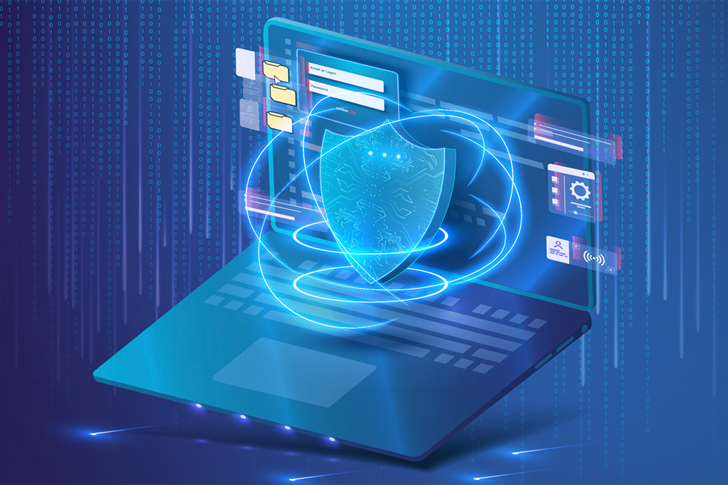Enhancing Cyber Security in Businesses with Affordable Antivirus Software
Introduction: The Critical Role of Antivirus Software in Business Cybersecurity
In today’s digital age, businesses face an unprecedented number of threats from cybercriminals. Data breaches, ransomware attacks, and phishing scams are just a few of the myriad threats that can severely disrupt business operations and compromise sensitive data. It is estimated that cybercrime will cost the world $10.5 trillion annually by 2025, up from $3 trillion in 2015, according to Cybersecurity Ventures. This stark statistic highlights the escalating importance of implementing robust cybersecurity measures, including affordable antivirus software, to protect business assets and maintain customer trust.

The Impact of Cyber Attacks on Businesses
A cyber attack can have devastating consequences for businesses of any size. According to the Ponemon Institute’s 2021 Cost of a Data Breach Report, the average total cost of a data breach is around $4.24 million per incident, representing a 10% increase over the past five years. This financial loss encompasses downtime, loss of customer trust, legal fees, and more. Small businesses, in particular, are vulnerable, with 43% of cyber attacks targeting them specifically, as reported by Verizon’s 2019 Data Breach Investigations Report. The economic and reputational damage can be so severe that some businesses never fully recover.
Why Antivirus Software is Essential
Antivirus software plays a fundamental role in the cybersecurity strategy of a business. At its core, antivirus software seeks to detect, prevent, and remove malware, including viruses, worms, and ransomware. It can also offer real-time protection against emerging threats. Sophisticated antivirus solutions use heuristic analysis and machine learning to adapt to new cyber threats quickly. This proactive approach to security not only helps to safeguard critical business information but also ensures that operations run smoothly without disruption from malicious cyber activities.
Choosing the Right Antivirus Software for Your Business
Selecting the right antivirus software involves evaluating several key factors including, but not limited to, effectiveness, cost, ease of use, and compatibility with other systems. Crucially, businesses should seek solutions that offer comprehensive protection tailored to their specific needs. For example, a company handling large volumes of sensitive data may need advanced features like network firewall, intrusion detection, and encryption. Moreover, the software must be scalable to grow with the company and adaptable to evolving cyber threat landscapes.
Cost-Effective Antivirus Solutions for Small and Medium-Sized Enterprises (SMEs)
SMEs often operate under tight budget constraints, making cost-effective cybersecurity solutions critical. Fortunately, many affordable antivirus software options do not compromise on quality. Brands like Bitdefender, Avast, and McAfee offer business-centric antivirus packages that provide robust protection at a competitive price. For instance, Bitdefender GravityZone Business Security offers comprehensive end-to-point protection for as little as $77.69 per year, covering up to three devices. Moreover, these platforms frequently offer free trials and scalable pricing models to accommodate growing business needs.
Implementing Antivirus Solutions: Best Practices
Merely purchasing antivirus software is not enough. Proper implementation and regular updates are crucial to ensure the effectiveness of the software. Businesses should ensure that all endpoints are covered and that the software is configured correctly to scan and monitor continuously for threats. Regular training sessions for employees on cybersecurity best practices and the importance of regular updates can further enhance a company’s security posture. Automating software updates is a practical approach to ensure that the business is protected against the latest threats.
The Role of Regular Audits and Compliance
Beyond installing antivirus software, regular audits of cybersecurity practices are vital for ensuring that no aspect of the cybersecurity infrastructure has been overlooked. These audits can help identify vulnerabilities that might be exploited by attackers and assess the adequacy of response strategies to potential security incidents. Compliance with standards such as the General Data Protection Regulation (GDPR) or the Payment Card Industry Data Security Standard (PCI DSS) also plays a crucial role in maintaining high security and trust, particularly for businesses handling significant volumes of customer data.
Case Studies: Success Stories From Real Businesses
Many businesses have successfully leveraged affordable antivirus solutions to safeguard their operations. For example, a mid-sized retailer implemented Kaspersky Small Office Security, which is specifically designed for smaller businesses, and noticed a 75% reduction in system breaches within the first year of implementation. Similarly, a tech startup using Avast Business Antivirus Pro Plus not only secured its endpoints but also significantly improved system performance, enhancing overall productivity.
Conclusion: Making Cybersecurity an Integral Part of Business Strategy
Affordable antivirus software provides a baseline of security critical for protecting business assets from various cyber threats. By choosing the right antivirus solution and adhering to best practices for implementation and maintenance, businesses can significantly mitigate the risk of cyber attacks. As cyber threats evolve, ongoing vigilance and adaptation will be imperative to defend against increasingly sophisticated cyber attacks aimed at exploiting new and existing vulnerabilities. Hence, cybersecurity, including effective antivirus protection, must be an integral part of the business strategy in the digital economy.







Recent Comments